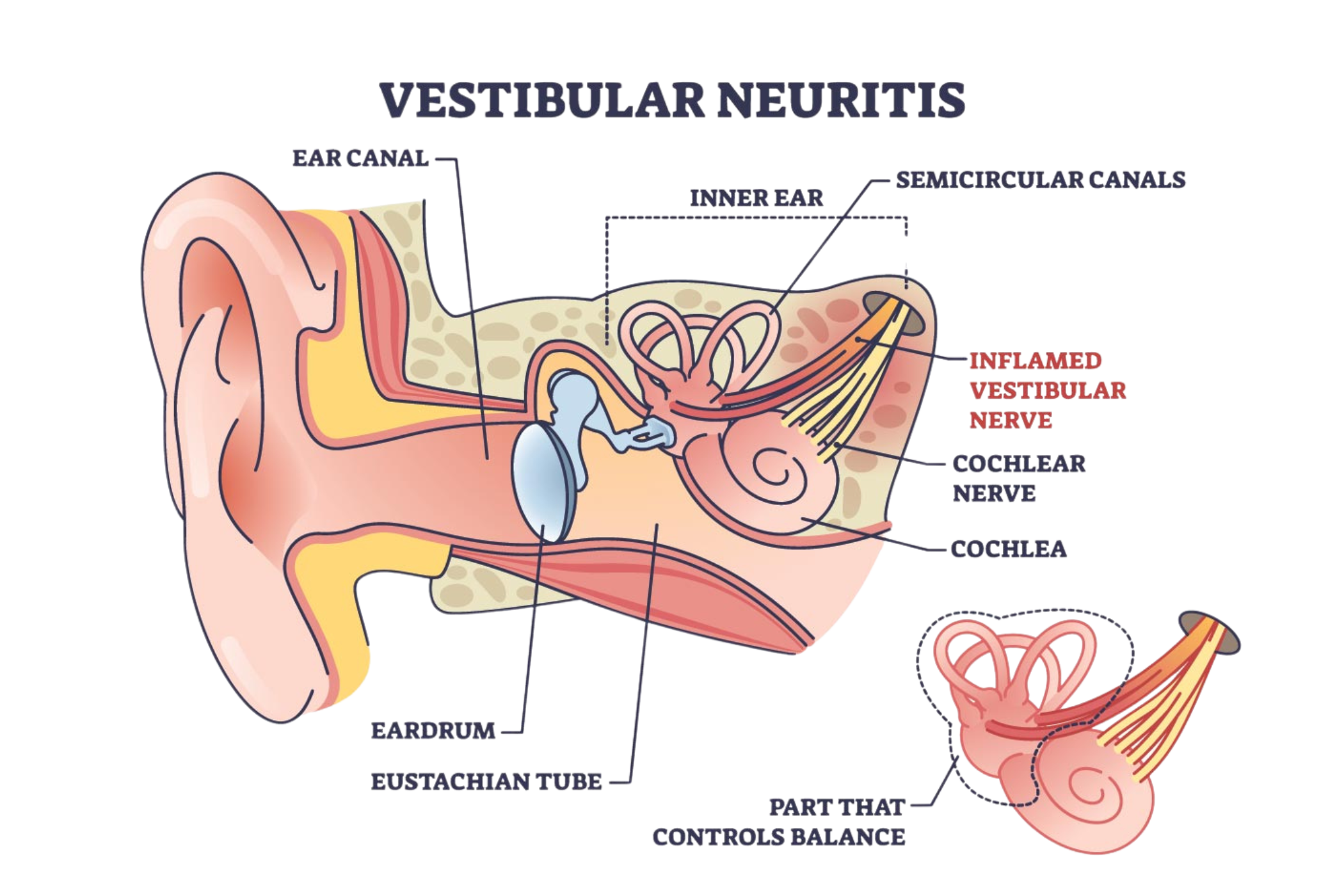What are the symptoms of vestibular neuritis
The main symptoms of vestibular neuritis are sudden and severe bouts of vertigo and imbalances. However, you may experience several other symptoms. It’s also important to note that there are two types of vestibular neuritis: acute and chronic. Below, we’ll explain the symptoms of both conditions.
Acute vestibular neuritis
The most common type of the condition is acute vestibular neuritis, where you may experience the following symptoms for up to a week:
- Sudden and severe vertigo
- Intense dizziness
- Feeling lightheaded or unsteady
- Inability to balance or walk properly
- Nausea and vomiting
- Trouble concentrating
- Severe motion sensitivity
- Vision difficulties
These symptoms may start suddenly and get worse as the day goes on. However, they often ease after a few days.
Chronic vestibular neuritis
Although rare, some may experience chronic symptoms after having vestibular neuritis, which could last anywhere from a few weeks to several months. These symptoms include:
- Mild dizziness
- Lightheadedness
- Mild nausea
- A feeling of fullness or pressure in your ears
- Mild motion sensitivity
- Difficulty walking due to feeling off balance
- Anxiety
We recommend speaking to your doctor if you’re struggling with chronic symptoms.



